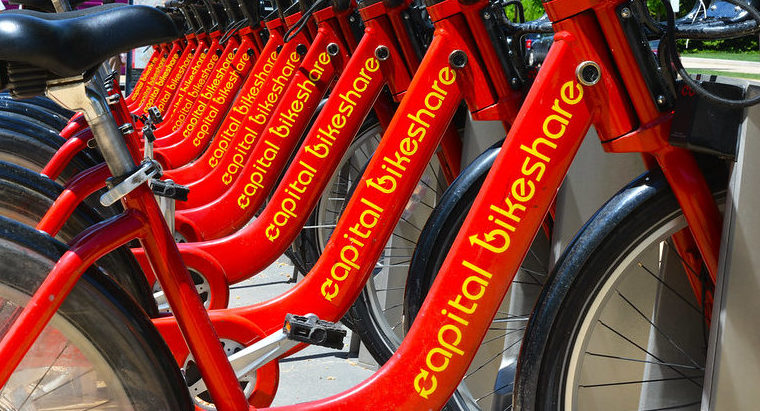
How cities are transitioning to a circular economy
22 September 2017
by Jonathan Andrews
By Abdeluheb Choho, Deputy Mayor of Amsterdam and Chair of EUROCITIES Environment Forum
Cities are key players in the transition to a circular economy, which goes far beyond their responsibility to manage waste. As economic and social hubs with the right scale, cities are uniquely positioned to move Europe towards a circular economy that will bring benefits both now and into the future.
The circular economy will generate new and sustainable competitive advantages for Europe, while ensuring that our planet lives within its limits. Reusing, repairing and redesigning, rather than throwing away materials at the end of product lifespans, as occurs in the traditional ‘linear’ economic model, has some obvious environmental, economic and social benefits.
As the level of government closest to citizens, cities are well placed to raise awareness of sustainable consumption and to stimulate new resource efficient business models. Cities have the power to influence the value chain, lead by example, make use of public procurement and support local stakeholders.
Given the fact that many cities will attract more citizens and businesses in the coming decades it is crucial that local governments accommodate this growth in a ‘future proof’ way.
Cities as innovators
Many cities across Europe have started their journey of transition to a more circular economy. Some have engaged in small projects in specific sectors, whereas others have taken more holistic approaches by developing circular strategies, such as in Amsterdam.
In Amsterdam we commissioned a report to understand the potential of transitioning to a circular economy within our metropolitan area. Following this, it was clear that the construction and organic waste value chains held the most potential for us in terms of extra added value, extra jobs, reduction of CO2 emissions and material use. By identifying where resources are being lost, such as through the disposal of building materials, and instead reusing them in a smart way by expanding their lifespan, we found that we could reduce carbon dioxide production by 500,000 tonnes per year while sticking to plans to build 70,000 new apartments by 2040.
Another way for local authorities to lead by example is to assess circular concepts in their decisions on public procurement. Utrecht is committed to increasing its share of circular procurement from 4 percent of the annual spend in 2016 to 10 percent by 2020, pursuant to an overall goal to become climate neutral by 2030. In developing a cycling highway between the centre of Utrecht and its suburbs, the city challenged contractors to submit circular solutions. The winning design used 100 percent recycled asphalt on the lower layer of the road, and uses less asphalt overall.
City administrations can support local stakeholders by providing networking opportunities, as well as funding information and sharing examples of best practice. The Brussels-Capital Region set up an online platform (Good Food Brussels) to map out and share news of existing initiatives and inspire others to take part. Overall, the project seeks to increase local food production to 30 percent of food consumed within the city, and decrease waste by making the entire food chain visible; from production to disposal.
Cities are committed to circular success
The European Union has made the circular economy a priority, since adopting its policy package two years ago. Given that over 75 percent of Europe’s population now live in urban areas, its success relies on cities being committed to this transition and acting as key stakeholders.
Future EU level legislation should ensure that products do not feature built-in obsolescence; are better designed for reuse and recycling, are easy to maintain and repair and use recycled materials. Developing common indicators of the circular economy, which are agreed by all stakeholders would also help to create standards and speedup progress.
The European Commission and member states should also facilitate and finance cooperation between cities and industry to make products more sustainable, building on existing positive experiences, as well as promoting innovative models for behavioural changes in consumption patterns.
Amsterdam chairs EUROCITIES’ task force on the circular economy which builds cities’ capacity and mainstreams the circular economy within the network. The EUROCITIES Conference 2017, taking place in Ljubljana, 15-17 November, will mark a real step up for cities’ involvement in the circular economy. We will be sharing ideas on circular solutions in procurement, urban development, jobs and skills and community building. Cities are committed to the transition to a more circular economy, where the value of products, materials and resources is maintained in the economy for as long as possible, and the generation of waste minimised. The future is circular.








